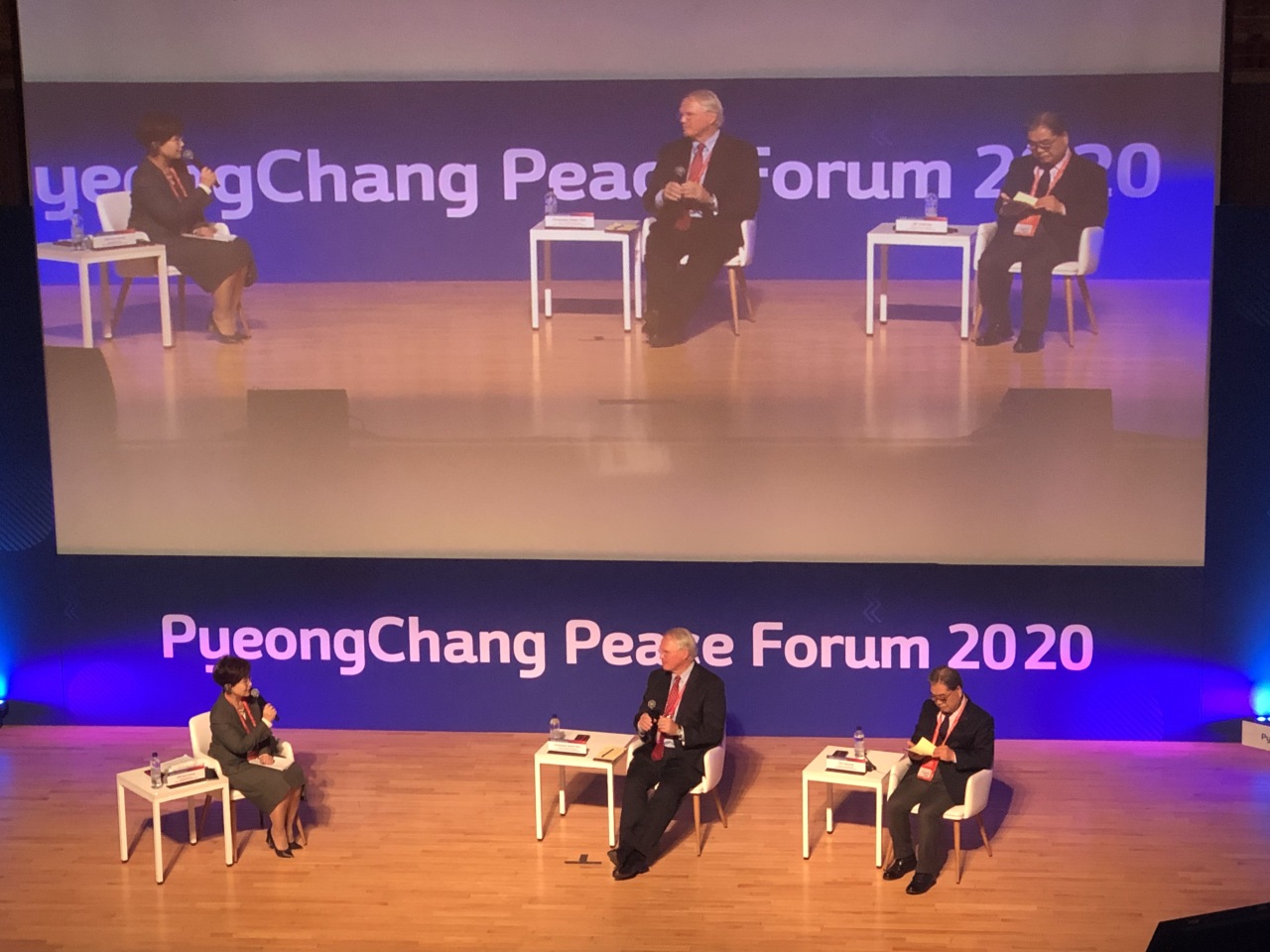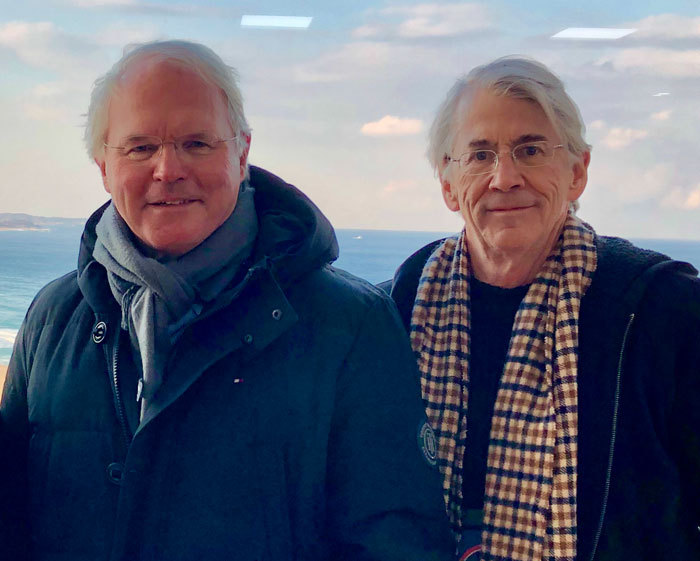Christopher Hill, a former U.S. ambassador to South Korea and lead negotiator for the six-party nuclear talks, is a familiar face for Koreans south of the Demilitarized Zone. After finishing his career as a diplomat, the three-time ambassador joined the University of Denver as a chief adviser and professor. Now he is stepping into the business side as an adviser to a U.S. investment banking boutique with the hope of bringing simple and effective businesses to North Korea, where changes are already happening.
“There is already sort of an economic transformation in North Korea. So we’re looking to see if we can be part of the upsurge of economic opportunities in the region,” Hill told The Korea Herald on Monday during his visit to PyeongChang, Gangwon Province, to speak at the PyeongChang Peace Forum.
 |
Christopher Hill (middle), former US ambassador to S.Korea, participate in a panel discussion during PyeongChang Peace Forum on Feb. 10. (Park Ga-young/The Korea Herald) |
Hill said that while it would be difficult for anyone to predict the future of North Korea, when changes happen there it will come at a time and at a pace that can’t be expected. And when the time comes, there will need to be some simple and effective business models -- such as breweries.
“The last thing we want to do with North Korea if there is reunification is try to set up software and biotech companies. We need to set up ways to generate energy, ways to create immediate jobs.
“So having proven models of business activity, especially ones that don’t require complex infrastructure, but rather ones that can be locally generated, and I think might be a good model, and frankly if I lived in North Korea for 75 years -- I’d be ready for a beer,” Hill added.
But this scenario is only after the two Koreas are reunified. For now, Hill holds a firm position that international sanctions must be enforced until the hermit kingdom abandons nuclear weapons.
John Braddock, CEO of Broad Oak Group International, the company Hill is advising, focuses on replicating Colorado's proven business models in Gangwon first.
“An old railroad community in Colorado faced tons of unemployment when railroads were shut down, and we began bringing in these businesses with breweries with train systems and it revived the local economy,” Braddock told The Korea Herald.
 |
Christopher Hill, former US ambassador to South Korea (left), and John Braddock, CEO of Broad Oak Global International, pose for photos at Goseong Unification Observatory Tower on Feb. 8. (John Braddock) |
“Craft breweries are cornerstone businesses that can offer educational, training and employment opportunities in local communities,” said Braddock, an investment banker with more than three decades of experience on Wall Street in New York.
Braddock, whose is helping plans to open a brew master school in Taebaek City this year, said that while focusing on fostering local brewery businesses in Gangwon Province, the special status as “the world’s only divided province” -- as local government officials put it -- makes the area very attractive for those who keep North Korea in their business mind.
But before the company is able to go to the North side of Gangwon Province, it wants to see a boom in local businesses by creating a much-needed local capital market for startups that currently heavily rely on government subsidies.
“The reason local startups are difficult to grow is because there is no capital market to support them,” he emphasized.
Despite its beautiful natural environment, the province once famous for coal mining is one of the least developed provinces in South Korea, with gross domestic product per capita standing at 14th out of 17 provinces and cities here.
“We try to finance with public-private money the initial startups and provide a road map for these other businesses, and then we use our network to invite other entrepreneurs,” Braddock said.
By Park Ga-young (
gypark@heraldcorp.com)




![[Herald Interview] 'Korea, don't repeat Hong Kong's mistakes on foreign caregivers'](http://res.heraldm.com/phpwas/restmb_idxmake.php?idx=644&simg=/content/image/2024/11/13/20241113050481_0.jpg)
![[KH Explains] Why Yoon golfing is so controversial](http://res.heraldm.com/phpwas/restmb_idxmake.php?idx=644&simg=/content/image/2024/11/13/20241113050608_0.jpg)



